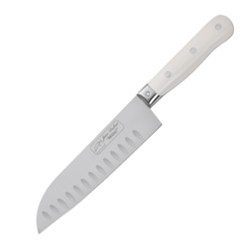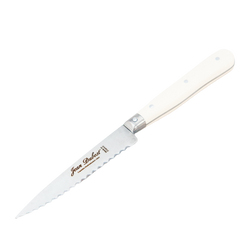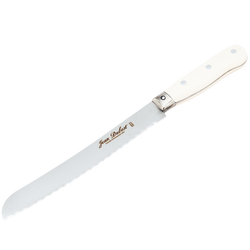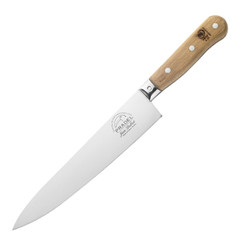The Jean Dubost Pradel 1920 Santoku Knife is a general-purpose must have, in Japanese "Santoku" means "three uses". This is referring to it's ability to slice, dice, and mince foods in a more satisfying manner. The full tang blade (2.5mm gauge) is made from high quality stainless steel, adding great strength and durability. The oak handle was selected from specific trees that are part of programs for lasting management of forests, and has the PEFC Certification (Program for the Endorsement of Forest Certification).
Oak handle
Stainless steel blades and cap
Stainless Steel Blade
Certificate of Authenticity
Care Instructions: We recommend washing your cutlery gently by hand under running hot water and to wipe it off immediately after. However, most of products, apart from those with natural wood handles, are dish-washer safe.
It is important to comply with the following instructions:
- Avoid long washing cycles
- Open the dish-washer as soon as the cycle is finished
- Do not leave the knives in the dish-washer for several hours after washing cycle
- When you take them out of the dishwasher and before putting them away, dry with a soft cloth
The Laguiole knife has been used in the south of France for over 200 years. Jean Dubost's family, inspired by the traditional peasant tool, has been crafting the artisan blades since 1920. Surrounded by legend and myth, the Laguiole knife still carries the mark of its ancestors. A bee that is found engraved on all Laguiole products, was originally part of Napoleon Bonaparte's imperial seal. The blade, made of high-grade stainless steel, is stamped, then ground and then polished in over 25 different manual production stages. Recently, the Laguiole mark has expanded to include flatware, wine waiters and cutlery crafted with the same quality and craftsmanship. Trusted and revered in kitchens and restaurants through-out France, the Dubost family is happy for the Laguiole tradition to finally reach this side of the Atlantic.







